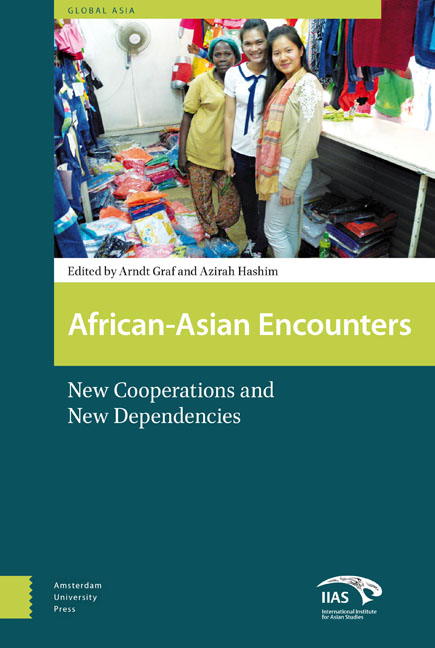4 - Beyond the State in Sino-African Relations?: Situating Civil Society Interactions
Published online by Cambridge University Press: 28 January 2021
Summary
Introduction
Chinese-African relations have attracted a lot of attention in recent times. Scholars and observers alike have rediscovered Africa's political interaction with China in the new millennium; a relationship that was preceded by periods of intense cooperation during the Cold War. This current rise in interest is owed to the close ties between China and many African states that have notably increased after the Forum for China-Africa Cooperation (FOCAC) was installed in October 2000. Ever since, the interaction between China and Africa has taken on various shapes and different sets of actors have conducted them with varying degrees of visibility. In particular, Chinese economic and political engagement on the continent has received various responses ranging from acceptance to support and even contestation. Social unease at China's renewed presence on the continent, for instance, came to the fore when COSATU, South Africa's trade union federation, declared that a ‘Chinese Tsunami’ was sweeping across Africa, particularly hitting the textile industry (Radebe 2009). Several years prior to this, COSATU itself was internally berated for not sufficiently mobilizing to protect key industries from Chinese competition (Majova 2005). On both occasions the position of local workers, who felt threatened by imported Chinese products and labour, gained national media attention. This example reveals Africa-wide tremors and murmurs that have on occasion been picked up on by news outlets.
Compared to such reporting, scholarship on civil society in Chinese- African relations has not been as quick to pick up on this new transnational dynamic. Inasmuch as non-state relations have come in second to state relations, normative and non-material characteristics have been less discussed than their physical and economic traits. In most instances, the literature sets itself apart from commentators who bemoan that civil society has been sidelined within the rapidly growing partnership between China and its African counterparts. Previous studies examine civil society within African-Chinese interaction on a continental scale (Ong’ayo 2010, 2011). They highlight how Chinese civil society has come to terms with an international dimension as represented by Chinese-African encounters (Brenner 2012; Chunshan 2013). 2013). Some studies loosely contain the aspirations and possibilities of including civil society within Chinese-African engagement (Yuhua 2010); whereas others suggest how international and Chinese civil society might intervene in Chinese-African relations (Obiorah 2007; Askouri 2008).
- Type
- Chapter
- Information
- African-Asian EncountersNew Cooperations and New Dependencies, pp. 103 - 132Publisher: Amsterdam University PressPrint publication year: 2017

